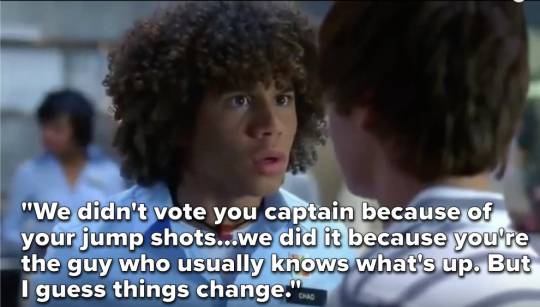Text





finally its done!! thats all three circuits! <3 it was a super fun little challenge between working on comics, but its not quite the end cos ive got some ideas for cutscene storyboards n whatever so. ill just b doin those as i feel like it. hope u like my lil au heheh
Minor Circuit | Major Circuit
#sorry for posting borderline macho cock on everyones dashes#punch out!!#punch out#punch out wii#super punch out#title defense 2#bald bull#aran ryan#super macho man#soda popinski
545 notes
·
View notes
Text
really important: do people still know about jordan eberle, taylor hall, and the worst hangman game of all time. Do They Know

#sorry to add#ryan whitney#to the dash but like#DO THEY KNOW ABOUT “EBSY CANT SPELL BANANA”#hockey#yes this is brought to you by someone tagging a picture of jordan with 'daddy' and it causing me psychic damage#i understand he is a literal father of two. but to me he will always also be “can't spell banana”
308 notes
·
View notes
Text
Real innovation vs Silicon Valley nonsense

This is the LAST DAY to get my bestselling solarpunk utopian novel THE LOST CAUSE (2023) as a $2.99, DRM-free ebook!

If there was any area where we needed a lot of "innovation," it's in climate tech. We've already blown through numerous points-of-no-return for a habitable Earth, and the pace is accelerating.
Silicon Valley claims to be the epicenter of American innovation, but what passes for innovation in Silicon Valley is some combination of nonsense, climate-wrecking tech, and climate-wrecking nonsense tech. Forget Jeff Hammerbacher's lament about "the best minds of my generation thinking about how to make people click ads." Today's best-paid, best-trained technologists are enlisted to making boobytrapped IoT gadgets:
https://pluralistic.net/2024/05/24/record-scratch/#autoenshittification
Planet-destroying cryptocurrency scams:
https://pluralistic.net/2024/02/15/your-new-first-name/#that-dagger-tho
NFT frauds:
https://pluralistic.net/2022/02/06/crypto-copyright-%f0%9f%a4%a1%f0%9f%92%a9/
Or planet-destroying AI frauds:
https://pluralistic.net/2024/01/29/pay-no-attention/#to-the-little-man-behind-the-curtain
If that was the best "innovation" the human race had to offer, we'd be fucking doomed.
But – as Ryan Cooper writes for The American Prospect – there's a far more dynamic, consequential, useful and exciting innovation revolution underway, thanks to muscular public spending on climate tech:
https://prospect.org/environment/2024-05-30-green-energy-revolution-real-innovation/
The green energy revolution – funded by the Bipartisan Infrastructure Act, the Inflation Reduction Act, the CHIPS Act and the Science Act – is accomplishing amazing feats, which are barely registering amid the clamor of AI nonsense and other hype. I did an interview a while ago about my climate novel The Lost Cause and the interviewer wanted to know what role AI would play in resolving the climate emergency. I was momentarily speechless, then I said, "Well, I guess maybe all the energy used to train and operate models could make it much worse? What role do you think it could play?" The interviewer had no answer.
Here's brief tour of the revolution:
2023 saw 32GW of new solar energy come online in the USA (up 50% from 2022);
Wind increased from 118GW to 141GW;
Grid-scale batteries doubled in 2023 and will double again in 2024;
EV sales increased from 20,000 to 90,000/month.
https://www.whitehouse.gov/briefing-room/blog/2023/12/19/building-a-thriving-clean-energy-economy-in-2023-and-beyond/
The cost of clean energy is plummeting, and that's triggering other areas of innovation, like using "hot rocks" to replace fossil fuel heat (25% of overall US energy consumption):
https://rondo.com/products
Increasing our access to cheap, clean energy will require a lot of materials, and material production is very carbon intensive. Luckily, the existing supply of cheap, clean energy is fueling "green steel" production experiments:
https://www.wdam.com/2024/03/25/americas-1st-green-steel-plant-coming-perry-county-1b-federal-investment/
Cheap, clean energy also makes it possible to recover valuable minerals from aluminum production tailings, a process that doubles as site-remediation:
https://interestingengineering.com/innovation/toxic-red-mud-co2-free-iron
And while all this electrification is going to require grid upgrades, there's lots we can do with our existing grid, like power-line automation that increases capacity by 40%:
https://www.npr.org/2023/08/13/1187620367/power-grid-enhancing-technologies-climate-change
It's also going to require a lot of storage, which is why it's so exciting that we're figuring out how to turn decommissioned mines into giant batteries. During the day, excess renewable energy is channeled into raising rock-laden platforms to the top of the mine-shafts, and at night, these unspool, releasing energy that's fed into the high-availability power-lines that are already present at every mine-site:
https://www.euronews.com/green/2024/02/06/this-disused-mine-in-finland-is-being-turned-into-a-gravity-battery-to-store-renewable-ene
Why are we paying so much attention to Silicon Valley pump-and-dumps and ignoring all this incredible, potentially planet-saving, real innovation? Cooper cites a plausible explanation from the Apperceptive newsletter:
https://buttondown.email/apperceptive/archive/destructive-investing-and-the-siren-song-of/
Silicon Valley is the land of low-capital, low-labor growth. Software development requires fewer people than infrastructure and hard goods manufacturing, both to get started and to run as an ongoing operation. Silicon Valley is the place where you get rich without creating jobs. It's run by investors who hate the idea of paying people. That's why AI is so exciting for Silicon Valley types: it lets them fantasize about making humans obsolete. A company without employees is a company without labor issues, without messy co-determination fights, without any moral consideration for others. It's the natural progression for an industry that started by misclassifying the workers in its buildings as "contractors," and then graduated to pretending that millions of workers were actually "independent small businesses."
It's also the natural next step for an industry that hates workers so much that it will pretend that their work is being done by robots, and then outsource the labor itself to distant Indian call-centers (no wonder Indian techies joke that "AI" stands for "absent Indians"):
https://pluralistic.net/2024/05/17/fake-it-until-you-dont-make-it/#twenty-one-seconds
Contrast this with climate tech: this is a profoundly physical kind of technology. It is labor intensive. It is skilled. The workers who perform it have power, both because they are so far from their employers' direct oversight and because these fed-funded sectors are more likely to be unionized than Silicon Valley shops. Moreover, climate tech is capital intensive. All of those workers are out there moving stuff around: solar panels, wires, batteries.
Climate tech is infrastructural. As Deb Chachra writes in her must-read 2023 book How Infrastructure Works, infrastructure is a gift we give to our descendants. Infrastructure projects rarely pay for themselves during the lives of the people who decide to build them:
https://pluralistic.net/2023/10/17/care-work/#charismatic-megaprojects
Climate tech also produces gigantic, diffused, uncapturable benefits. The "social cost of carbon" is a measure that seeks to capture how much we all pay as polluters despoil our shared world. It includes the direct health impacts of burning fossil fuels, and the indirect costs of wildfires and extreme weather events. The "social savings" of climate tech are massive:
https://arstechnica.com/science/2024/05/climate-and-health-benefits-of-wind-and-solar-dwarf-all-subsidies/
For every MWh of renewable power produced, we save $100 in social carbon costs. That's $100 worth of people not sickening and dying from pollution, $100 worth of homes and habitats not burning down or disappearing under floodwaters. All told, US renewables have delivered $250,000,000,000 (one quarter of one trillion dollars) in social carbon savings over the past four years:
https://arstechnica.com/science/2024/05/climate-and-health-benefits-of-wind-and-solar-dwarf-all-subsidies/
In other words, climate tech is unselfish tech. It's a gift to the future and to the broad public. It shares its spoils with workers. It requires public action. By contrast, Silicon Valley is greedy tech that is relentlessly focused on the shortest-term returns that can be extracted with the least share going to labor. It also requires massive public investment, but it also totally committed to giving as little back to the public as is possible.
No wonder America's richest and most powerful people are lining up to endorse and fund Trump:
https://prospect.org/blogs-and-newsletters/tap/2024-05-30-democracy-deshmocracy-mega-financiers-flocking-to-trump/
Silicon Valley epitomizes Stafford Beer's motto that "the purpose of a system is what it does." If Silicon Valley produces nothing but planet-wrecking nonsense, grifty scams, and planet-wrecking, nonsensical scams, then these are all features of the tech sector, not bugs.
As Anil Dash writes:
Driving change requires us to make the machine want something else. If the purpose of a system is what it does, and we don’t like what it does, then we have to change the system.
https://www.anildash.com/2024/05/29/systems-the-purpose-of-a-system/
To give climate tech the attention, excitement, and political will it deserves, we need to recalibrate our understanding of the world. We need to have object permanence. We need to remember just how few people were actually using cryptocurrency during the bubble and apply that understanding to AI hype. Only 2% of Britons surveyed in a recent study use AI tools:
https://www.bbc.com/news/articles/c511x4g7x7jo
If we want our tech companies to do good, we have to understand that their ground state is to create planet-wrecking nonsense, grifty scams, and planet-wrecking, nonsensical scams. We need to make these companies small enough to fail, small enough to jail, and small enough to care:
https://pluralistic.net/2024/04/04/teach-me-how-to-shruggie/#kagi
We need to hold companies responsible, and we need to change the microeconomics of the board room, to make it easier for tech workers who want to do good to shout down the scammers, nonsense-peddlers and grifters:
https://pluralistic.net/2023/07/28/microincentives-and-enshittification/
Yesterday, a federal judge ruled that the FTC could hold Amazon executives personally liable for the decision to trick people into signing up for Prime, and for making the unsubscribe-from-Prime process into a Kafka-as-a-service nightmare:
https://arstechnica.com/tech-policy/2024/05/amazon-execs-may-be-personally-liable-for-tricking-users-into-prime-sign-ups/
Imagine how powerful a precedent this could set. The Amazon employees who vociferously objected to their bosses' decision to make Prime as confusing as possible could have raised the objection that doing this could end up personally costing those bosses millions of dollars in fines:
https://pluralistic.net/2023/09/03/big-tech-cant-stop-telling-on-itself/
We need to make climate tech, not Big Tech, the center of our scrutiny and will. The climate emergency is so terrifying as to be nearly unponderable. Science fiction writers are increasingly being called upon to try to frame this incomprehensible risk in human terms. SF writer (and biologist) Peter Watts's conversation with evolutionary biologist Dan Brooks is an eye-opener:
https://thereader.mitpress.mit.edu/the-collapse-is-coming-will-humanity-adapt/
They draw a distinction between "sustainability" meaning "what kind of technological fixes can we come up with that will allow us to continue to do business as usual without paying a penalty for it?" and sustainability meaning, "what changes in behavior will allow us to save ourselves with the technology that is possible?"
Writing about the Watts/Brooks dialog for Naked Capitalism, Yves Smith invokes William Gibson's The Peripheral:
With everything stumbling deeper into a ditch of shit, history itself become a slaughterhouse, science had started popping. Not all at once, no one big heroic thing, but there were cleaner, cheaper energy sources, more effective ways to get carbon out of the air, new drugs that did what antibiotics had done before…. Ways to print food that required much less in the way of actual food to begin with. So everything, however deeply fucked in general, was lit increasingly by the new, by things that made people blink and sit up, but then the rest of it would just go on, deeper into the ditch. A progress accompanied by constant violence, he said, by sufferings unimaginable.
https://www.nakedcapitalism.com/2024/05/preparing-for-collapse-why-the-focus-on-climate-energy-sustainability-is-destructive.html
Gibson doesn't think this is likely, mind, and even if it's attainable, it will come amidst "unimaginable suffering."
But the universe of possible technologies is quite large. As Chachra points out in How Infrastructure Works, we could give every person on Earth a Canadian's energy budget (like an American's, but colder), by capturing a mere 0.4% of the solar radiation that reaches the Earth's surface every day. Doing this will require heroic amounts of material and labor, especially if we're going to do it without destroying the planet through material extraction and manufacturing.
These are the questions that we should be concerning ourselves with: what behavioral changes will allow us to realize cheap, abundant, green energy? What "innovations" will our society need to focus on the things we need, rather than the scams and nonsense that creates Silicon Valley fortunes?
How can we use planning, and solidarity, and codetermination to usher in the kind of tech that makes it possible for us to get through the climate bottleneck with as little death and destruction as possible? How can we use enforcement, discernment, and labor rights to thwart the enshittificatory impulses of Silicon Valley's biggest assholes?

If you'd like an essay-formatted version of this post to read or share, here's a link to it on pluralistic.net, my surveillance-free, ad-free, tracker-free blog:
https://pluralistic.net/2024/05/30/posiwid/#social-cost-of-carbon
#pluralistic#ai#hype#anil dash#stafford beer#amazon#prime#scams#dark patterns#POSIWID#the purpose of a system is what it does#climate#economics#innovation#renewables#social cost of carbon#green energy#solar#wind#ryan cooper#peter watts#the jackpot#ai hype#chips act#ira#inflation reduction act#infrastructure#deb chachra
157 notes
·
View notes
Text

#nobody in specific - the general You ^_^#a doodley#also hi i dont wanna clutter dash with more talkys posts so im talking here#i wasnt even fixating on the hozier lyric i used to caption that other doodle but once i singled it out i cant stop thinking about it#agh...whatever keeps you around... it keeps you around....!#also i wanna make more (neopets) adopts...#and also also i started watching a ryan gosling movie i felt i would like or be impacted by and.#well im being impacted by it so far. i stopped halfway as i have become tired...i wanna go to bed ^_^#really relatable in his characters mannerisms and feelings and such so far. good lird.#gnnnn ^_^
350 notes
·
View notes
Text

a merry Between Week to everyone! rest well!
extra layers:




#sundown wishes you all well!#im not a festive person Unless Its Halloween#but i cannot deny the allure of the crisis Aesthetic#and im Always looking for an excuse to draw my guys <3#i enjoyed putting them in a santa/reindeer themed version of their usual fits#they'd deliver presents So fucking violently. gusto! showmanship! Destruction!#ryan wears spiked horseshoes for a reason... a reason Other than ice....#and then they'd dash off into the night with a Yeehaw & a Hawyee#scribble garnish#forced idiots <3#oc#original character#puppet oc#i will say! the colors fell apart As Usual#the intricacies of hue continue to elude me#but oh my god am i proud of the lines#i spent. so much time getting this Mostly right#adding the line weight... soothing and yet oof ouch my wrists#this took a lot out of me! im tired! but happy!#a little gift to myself i think#also im sorry but i must be insane about sundown for a moment#GAH SHE ACHASDSAKLNADKML FUCKFUCKFUCK SHE'S SO IT'S SO I'M SO-#SHE MAKES ME UNWELL SHE'S MY OWN BRAIN GUY BUT SHE MAKES ME INSANE#PUPPET CORRUPTION ARC REAL BUT LIKE IN A POSITIVE WAY KINDA#not the arson. arson is not positive BUT THE OTHER STUFF LETS GO SUNDOWN SUMMER. MY BELOVED SUNNY#also bc i feel like someone's gonna tag her as such bc that usually happens:#friendly reminder! Her Ass Is Not A WH Oc. She's Just A Funky Fella From My Headworlds
198 notes
·
View notes
Text
Why High School Musical 2 and Revenge Of The Sith are almost the same film
Okay so we have the main character


who is a part of a community


But he's worried about his future e.g Anakin is worried about Padme dying, Troy is worried about going to college and knowing what to do with his life.
He has a best friend who's got his back


and a love interest


We then have a villain/girlboss


who really admires the main character and will do anything to have them join them.
So Palpatine/Sharpay offers Anakin/ Troy what they want. Anakin wants Padme to be safe and rank of master. Troy wants a college scholarship.
Over time Anakin/Troy loses his morals and begins to enjoy this new power, driving him away from the Jedi/wildcats.
We see this with Anakin giving into the dark side, and Troy loving his italian shoes and new golf job and being rude when his friends are serving him food. Also ditching his friends to play basketball with the scholarship people.
There is also a side plot where Anakin gets false suspicions of Obi-Wan and Padme being a thing, and Troy gets sus about Ryan and Gabriella being a thing.


Anyways now that palpatine/sharpay has Anakin/Troy, they no longer need their original partner/apprentice


Obi-Wan/Chad confronts Anakin/ Troy and have a big falling out


And Padme/Gabriella are so heartbroken that they have a really dramatic goodbye scene.



Padme dies/Gabriella leaves and everyone is mourning their leaving

Palpatine/sharpay commits the worst offence. Palpatine executes order 66

Sharpay makes the east high crew work during the talent show.

The main difference is that Troy realises his errors and fixes everything, whilst Anakin continues on into the dark side.
Oh and that there’s no singing in Revenge of the sith but you CAN’T tell me that Anakin wasn’t singing Bet On It whilst he was alone on mustafar.
The end.
#bringing my iconic twitter thread to tumblr#anakin skywalker#star wars#Revenge of the Sith#rots#troy bolton#hsm#hsm 2#high school musical#high school musical 2#palpatine#sharpay evans#obi wan kenobi#chad danforth#padme amidala#gabriella montez#ryan evans#count dooku#dashboard#dash#welcome to tumblr#twitter#elon musk
1K notes
·
View notes
Text


I came up with a way to fill in the little blank spaces on my wizsein doodle sheet :]
#why is this popping off LOL I mean thank u but also why#I'm so sorry to anyone whose entire fucking dash was taken up by that before I edited LOL 😭#Ryan’s only headgear is the omen stribog mask but it feels wrong to not give them a pointed hat like abracadoodle hehe#I’m uuuuuhhh kind of addicted to drawing Dasein’s tentacles#I swear this is not some Freudian thing lmmmmaaaoooo#drawing all those flowy lines is really relaxing/satisfying =u=#wizard101 pls hire me to fill the margins of every map with nothing but Dasein#w101#wizard101#wiz101#w101 fandom#w101 art#wizard101 fandom#wizzy fandom#dasein#wizsein#steve-brules-art
47 notes
·
View notes
Text

His little face😭🥹
28 notes
·
View notes
Text

#for all the destiel people on my dash lol#ryan guzman#oliver stark#911#I need to stop for today ….maybe the week. I’ve been annoying I’m sorry
77 notes
·
View notes
Text





just because
56 notes
·
View notes
Text
WATCHLIST 2023: A Million Little Pieces




#movie watchlist#a million little pieces#aaron taylor johnson#billy bob thornton#charlie hunnam#odessa young#ryan hurst#giovanni ribisi#charles parnell#juliette lewis#david dastmalchian#dash mihok#sam taylor johnson
25 notes
·
View notes
Text

sleepover!!!!!!!!!!!!!!!!!!!!!!!!!
#had 2 physically beat this image out of my head & onto my fuckass ipad#testing the waters of will i be kicked out of the veep fandom 4 brony jonah truthing time to find out#anyway jonah is a rainbow dash kinnie#veep#veeposting#jonah ryan#dan egan#amy brookheimer#bun doodles
44 notes
·
View notes
Text
ryan reynolds this ryan reynolds that. where is his actual tumblr account i can't even find it in this chaos of memes
#like i dont wanna attack him or anything but i wanna see what hes posting#is he being a good tumblr citizen and reblogging everything on his dash?#does he have a tag system?#a queue? a tag for his queue?#who are his blorbos?#what's his color palette? his header? i need to know these things#ryan reynolds
745 notes
·
View notes
Text
Shipwrecked Comedy proudly presents: DASHING THROUGH THE SNOW A Fig & Ford Holiday Special Written & Created by Sean Persaud & Sinead Persaud Directed by William J. Stribling
Deciding to retire from the private eye business, Dash Gunfire goes home to visit his family for Christmas and finds himself solving a holiday mystery.
FEATURING Lauren Lopez as Dash's Mom Joey Richter as Dash Gunfire Ryan W. Garcia as Cousin Crash and more
Out now wherever you listen to podcasts! 🎧
#shipwrecked comedy#fig and ford#the case of the greater gatsby#dashing through the snow#holiday special#dash gunfire#joey richter#lauren lopez#ryan w. garcia
69 notes
·
View notes
Text
i love when people censor their entire tags like this * **** **** *** ********** but it does awaken a demon in the back of my head that says to ask people i’ve never spoken to before “hey. i’m curious by nature can you uncensor your horny secret message for me”
11 notes
·
View notes
Text

dunn&dash⚡... right on!!!!!1
36 notes
·
View notes